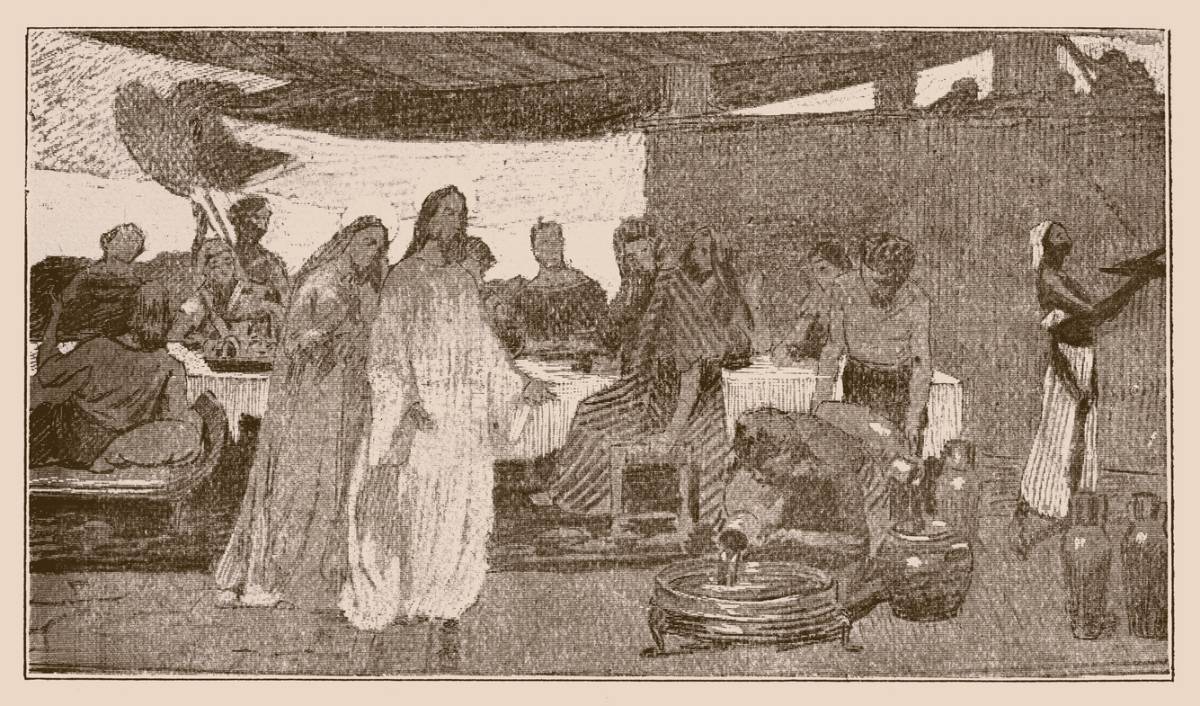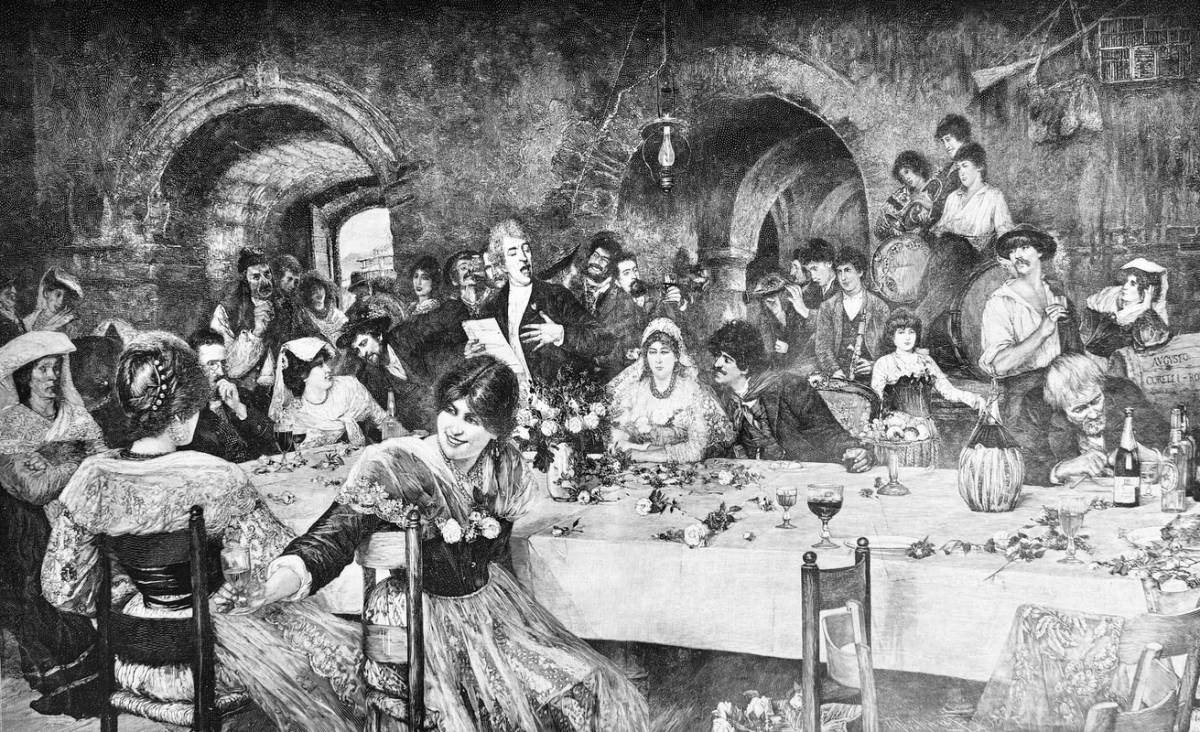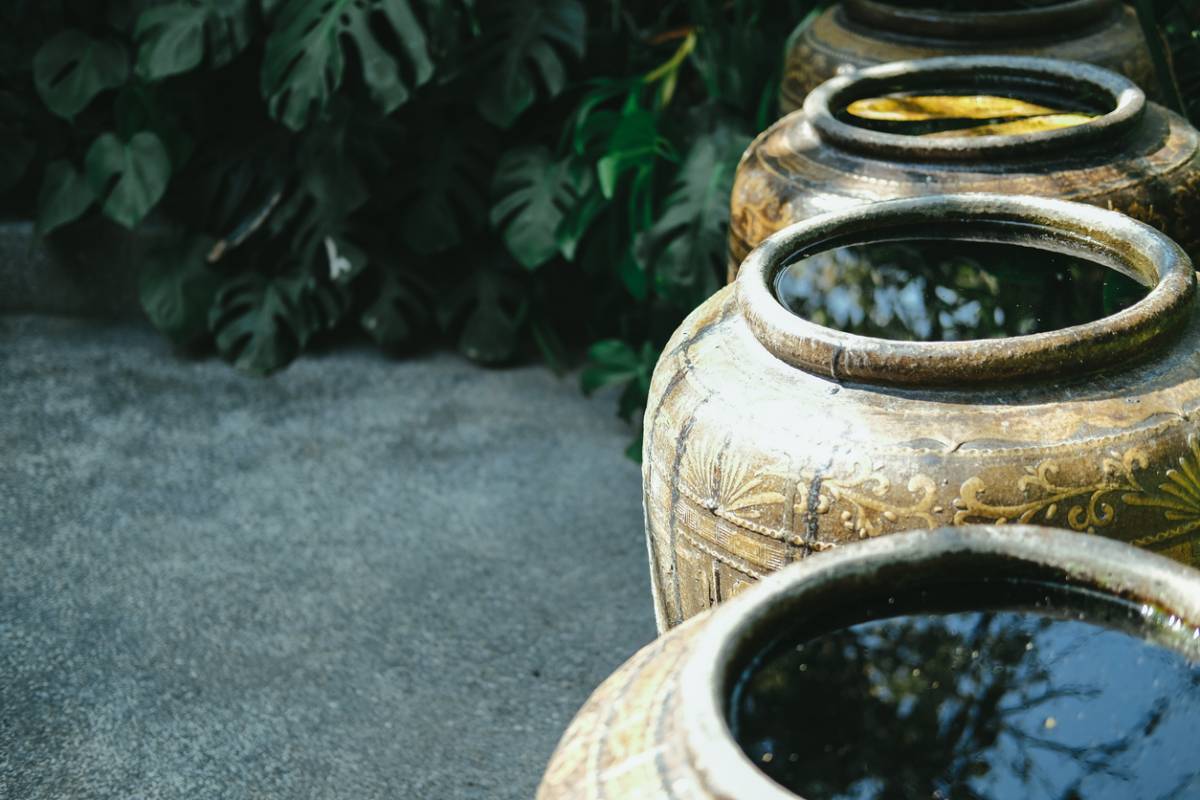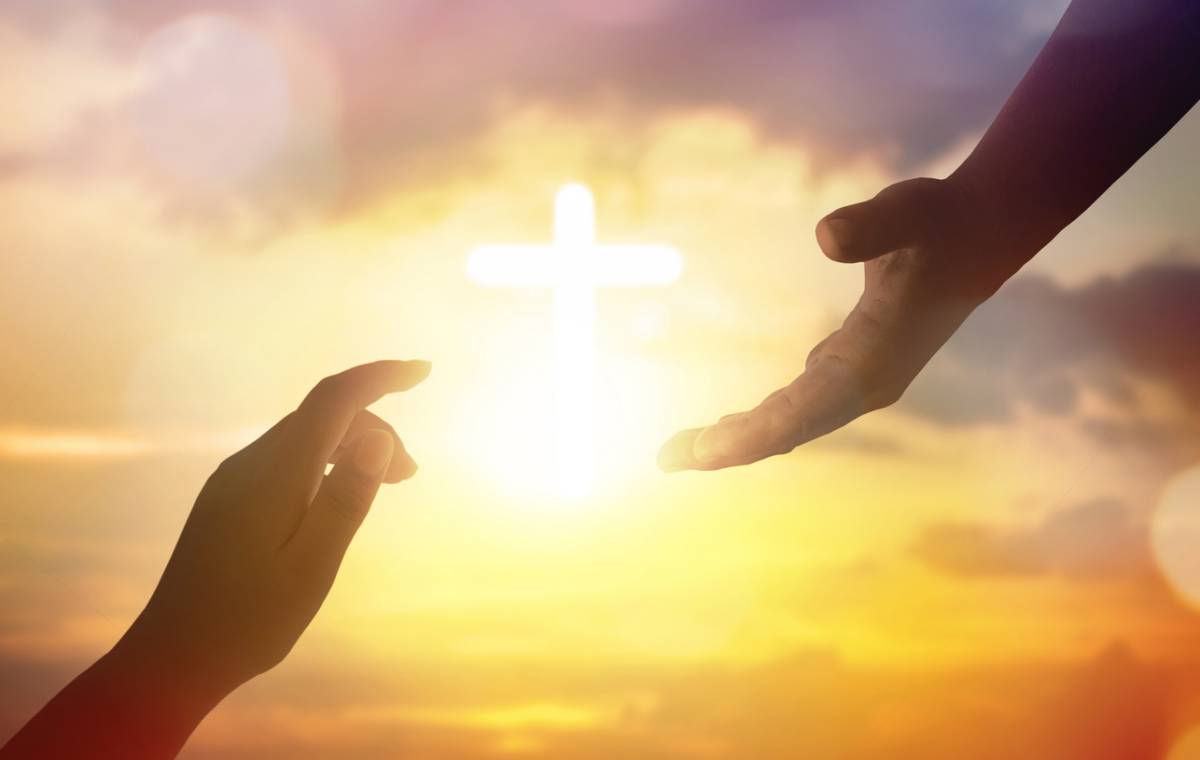The Wedding Feast at Cana
When God and humanity are ‘married’, all connections between human beings are intensified and deepened.
It is fitting and powerfully symbolic that Jesus’ first miracle, his first public “sign”, takes place at a wedding, the Wedding Feast at Cana (Jn. 1-11). If we read into the depths, that is, the deeper meaning of this event and its particular parts, we can get a deeper insight into its meaning to us as followers of Jesus Christ, here and now. To begin with, this marriage between an ‘anonymous’ man and woman takes place in the tiny Galilean village of Cana. Significantly, this takes place in a small village in Galilee. For John, Galilee is the country of the resurrection. For Galilee is the place where Jesus would meet his friends after his resurrection. That this story takes place in the context of a marriage feast is also symbolic of a much deeper and more important marriage. For Jesus, in coming into our humanity, marries divinity to humanity.

Jesus came into the world to redeem and to transform it and us and this, in part, is what the whole business with the six stone water jars is about. Remember that number. These six stone water jars were there so that the people at this wedding feast could perform the ablutions required by the Mosaic law as part of the religious rites of the Jews at that time. We must remember, too, that in a small village like Cana, marriages would have been few and far between, so they were matters of great importance and occasions for great cheer and festiveness. They would be occasions of great joy and celebration, not just for the bride and groom and their families, but for the whole community.

At the center of this story, as we are told according to John, is the potentially troubling fact that the wine, which was central to the conviviality and joy of the feast, was running out. It was common in Jesus’ time that wedding feasts would go on for several days. To run out of wine would have been a great embarrassment, even a matter of potential shame, to the groom, his bride, and his family. Jesus’ mother, Mary, notices the imminent problem and goes to Jesus and tells him, “They have no wine” (Jn. 2:3). To which Jesus replies, “Woman, what concern is that to you and to me” (v. 4)? This response may seem cold and rather distant, but Mary is not put off by this response. She simply tells the servants, “Do whatever he tells you” (v. 5). And those words are worthy of our own contemplation. We should hear her speaking them into our own hearts as well.

The empty jars imply both the tiredness and uselessness of a religiosity that is dulled by the world and disconnected from the divine Spirit and, at the same time, the potential for new life. Jesus tells the servants to fill the six now empty jars with water. John tells us pointedly that they not only filled them but filled them “to the brim” (v. 7). Here we are to see the wine jars as symbolic of our own emptiness and need. And we are also to see ourselves as the servants who Jesus instructs to fill the jars. In other words, Jesus commissions us to cooperate with him, to ‘do as he tells us’, to empty ourselves, especially of our egos, and to willingly acquiesce to his wisdom so that he can fill us up and nourish us, not with mere water, but with the perfected wine of His Spirit, God’s love. We can not become wine by our prompting or by our human agency; only God’s love and grace can do that.

Going back to the six stone jars, we are to remember that numerology was very important to the Jews. The number that implied wholeness, and completion, was the number 7. So these six jars represent something incomplete. This first sign, this first miracle of Jesus’ public ministry, is connected to Jesus’ final act, his death on the cross. It is at that moment that Jesus became the wine of salvation, the wine of total, self-giving love and mercy, and he desires even now to fill the empty jars of our world and of ourselves ‘up to the brim’ with the Wine of his divine life.

When God and humanity are ‘married’, all connections between human beings, in friendship, in marriage, in culture and in society, are intensified and deepened. Just as Jesus “perfects” the water into wine at Cana, he perfects us, he transforms our gifts at every level into greater meaning and purpose. When God and we, his creatures, meet and marry we are made more authentically ourselves. This is the marriage that the marriage feast of Cana presages. “Jesus did this, the first of his signs, in Cana of Galilee, and revealed his glory; and his disciples believed in him” (v. 11). Do we?
SKM: below-content placeholderWhizzco for FHB

